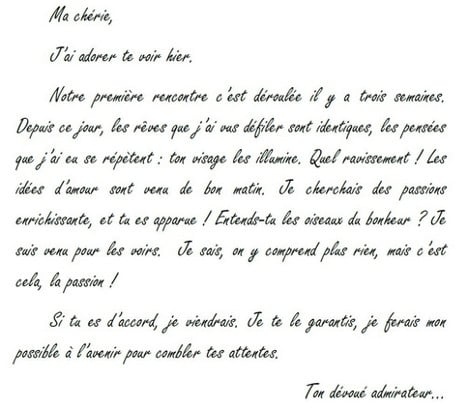
LANGUAGE AND CULTURE
Test: Just how good is your French grammar?
A new French survey has found that the spelling and grammar skills of the French are on the slide, with men particularly worse than women. Try out the test that circulated online in France on Thursday.
Published: 11 June 2015 17:44 CEST

The “Voltaire Barometre” was published on Thursday, revealing that the level of French people's grammar has been deteriorating over the past few years.
It noted that the decline was constant in terms of people's social class and their age, but that men performed worse than their female counterparts overall.
Researchers suggested this could be because French women read more than men, particularly thanks to the popularity of “literature that is very feminine”, they told Le Parisien newspaper.
The survey saw 85,000 French people of all ages tested to spot a series of common spelling and grammar mistakes, with the results then compared to 5,000 tests that were carried out in 2010.
Ten of the most common mistakes have been purposely included in this love letter below, published by French newspaper L'Express… how many can you spot? (Answers below).
Good luck

The letter in its correct form (explanations below):
Ma chérie,
J'ai adoré te voir hier.
Notre première rencontre s'est déroulée il y a trois semaines. Depuis ce jour, les rêves que j'ai vu défiler sont identiques, les pensées que j'ai eues se répètent: ton visage les illumine. Quel ravissement! Les idées d'amour sont venues de bon matin. Je cherchais des passions enrichissantes, et tu es apparue! Entends-tu les oiseaux du bonheur? Je suis venu pour les voir. Je sais, on n'y comprend plus rien, mais c'est cela, la passion!
Si tu es accord, je viendrai. Je te le garantis, je ferai mon possible à l'avenir pour combler tes attentes.
Ton dévoué admirateur…
1: J'ai adoré [past participle]
2: Notre première rencontre s'est [personal pronoun]
3: les rêves que j'ai vu défiler [Past participle doesn't need to agree before an infinitive]
4: les pensées que j'ai eues [past participle must agree]
5: Les idées d'amour sont venues [verbs taking être in past tense must agree]
6: des passions enrichissantes [Qualifying adjectives must agree]
7: Je suis venu pour les voir [Verb should be infinitive]
8: Je sais, on n'y comprend [needs the negation before the y]
9: Si tu es d'accord, je viendrai [Use future tense after beginning a sentence with si in present tense]
10: Je te le garantis, je ferai [No s needed for future indicative tense]
Scoreboard
1-4 mistakes: You are a French novice, back to class
5-8 mistakes: Well done, you're probably on par with the typical French speaker
9-10 mistakes: Are you French? If not, you could have fooled us. Well done!
Url copied to clipboard!



 Please whitelist us to continue reading.
Please whitelist us to continue reading.
Member comments